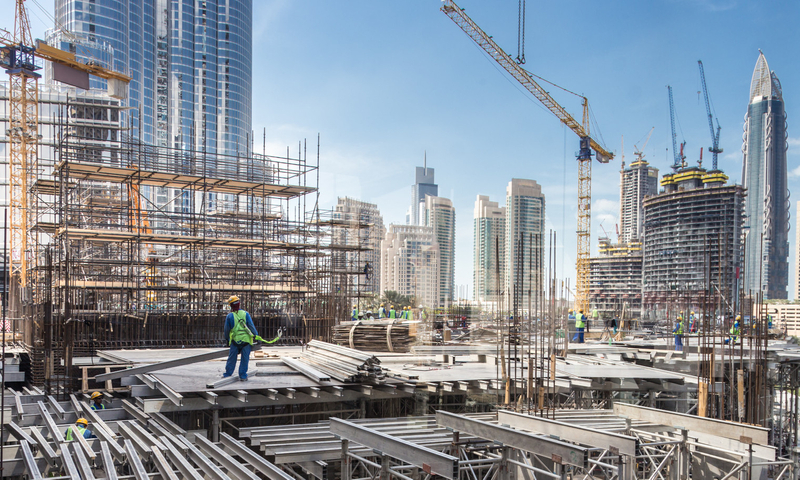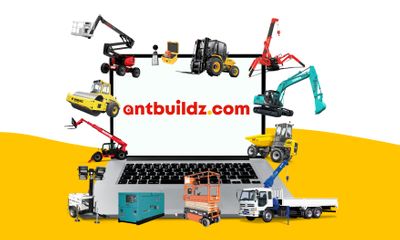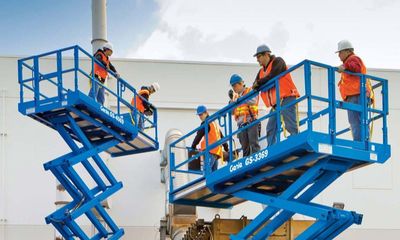© 2025 Powered by Antbuildz.com
© 2025 Powered by Antbuildz.com

If you are not in the construction field, you would probably confuse about what is the differences between cement, mortar, and concrete. We have seen a lot of peoples using these three terms inaccurately and synonymously.
Cement, concrete, and mortar are three distinctly different materials with different functionality. In this article, we would like to give a basic introduction to help you understand what cement, concrete, and mortar are and what is their application.

Cement is a fine binding powder that is never used alone but is an important component for both concrete and mortar, as well as grout.
It is commonly made of limestone, clay, shells, and silica sand, with limestone being the most prevalent ingredient. These materials are crushed and combined with other ingredients (including iron ore), and then heated to about 2,700 F. This material, called clinker, is ground into a fine powder, and packaged to use for mixing various cementitious building materials, including mortar and concrete.
The most common cement is Portland cement. This is because it was first made in the 1800s in England by a mason, Joseph Aspdin of Leeds, who likened the color to the stone from the quarries on the island of Portland, off the coast of England. Today, Portland cement remains the most common type of cement used in building materials. It is a type of "hydraulic" cement, which simply means that it will set and harden when combined with water.

Mortar is yet another building material composed of cement, which in this case is mixed with fine sands and water, with lime added to improve the durability of the product. Adding water to this mix activates the cement so that it hardens, or cures, just as with concrete. Mortar is not as strong as concrete and typically is not used as a sole building material. Rather, is it the "glue" that holds together bricks, concrete blocks, stone, and other masonry materials? You can easily see the application of mortar in bricklaying.

Concrete is composed of cement, sand, and gravel, or other fine and coarse aggregate. The addition of water activates the cement, which is the element responsible for binding the mix together to form a solid.
Concrete is a complete building material used for foundation walls, concrete slabs, patios, and many other masonry structures. It is uniquely versatile because it starts out as a simple, dry mixture, then becomes a flexible, semi-liquid material capable of forming into any mold or shape, and which dries into the hard-as-rock material we know as concrete. In many concrete structures, metal reinforcement, such as wire mesh or rebar, is added for strength and to minimize the cracking that can occur in solid concrete.

You usually see concrete mix trucks on the road as above, these are called “ready-mix" concrete, where it will be pre-mix in a factory and send to the site for in situ casting.
To summarize, cement is an important component of mortar and concrete, which cannot be used alone. The difference between mortar and concrete is in the different ingredient mixture, where make them different in strength and usage. Concrete will be higher in strength and commonly used for loading structure, while mortar is used for a non-loading structure such as glue for bricks and other landscape or aesthetic structures.
We are the first intelligent digital platform in Singapore set to reinvent the traditional construction equipment rental into a truly touchless equipment rental experience. Visit antbuildz.com to search your preferred equipment such as Push Around or even a scissor lift, check the price, and rent it instantly over the platform here.
Remember to like and share our Facebook page! bit.ly/34MdSFh
Any Questions?
WhatsApp or Call Us for a FREE consultation on the most suitable equipment for your site. We’re more than happy to assist!
Related Articles

Why Are There No Mega Skyscrapers in Singapore?
Have you ever wondered why Singapore, one of the most developed countries in Asi ...
Learn more
22 Jan , 2025

How Antbuildz.com Revitalizes Construction Equipment Rentals
By being an aggregate for equipment rentals, Antbuildz.com has ultimately change ...
Learn more
22 Jan , 2025

Five Common Scissor Lift Hazards You Must Not Ignore
Scissor lift is no doubt one of the most popular pieces of equipment to be rente ...
Learn more
22 Jan , 2025

Step-by-Step Guide: How to List Your Rental Equipment on Antbuildz.com
As technology evolves, the way pricing is discovered has drastically changed. Wh ...
Learn more
22 Jan , 2025